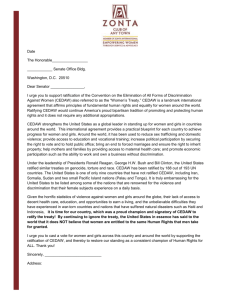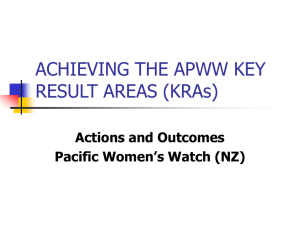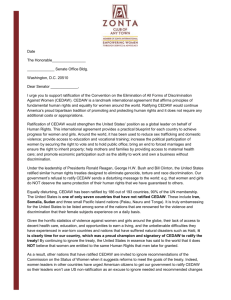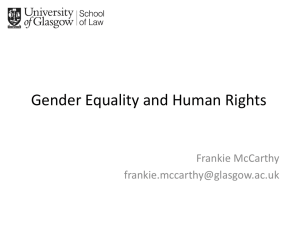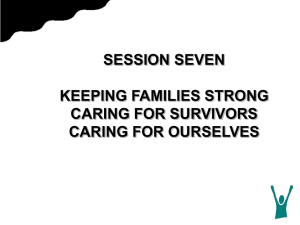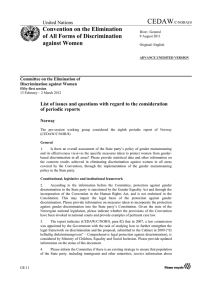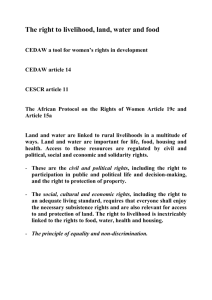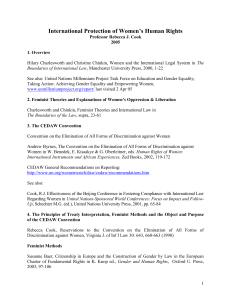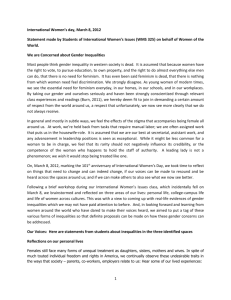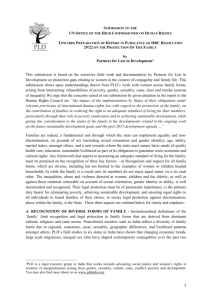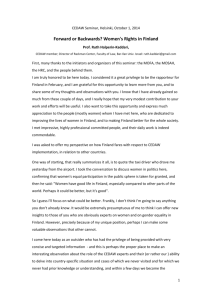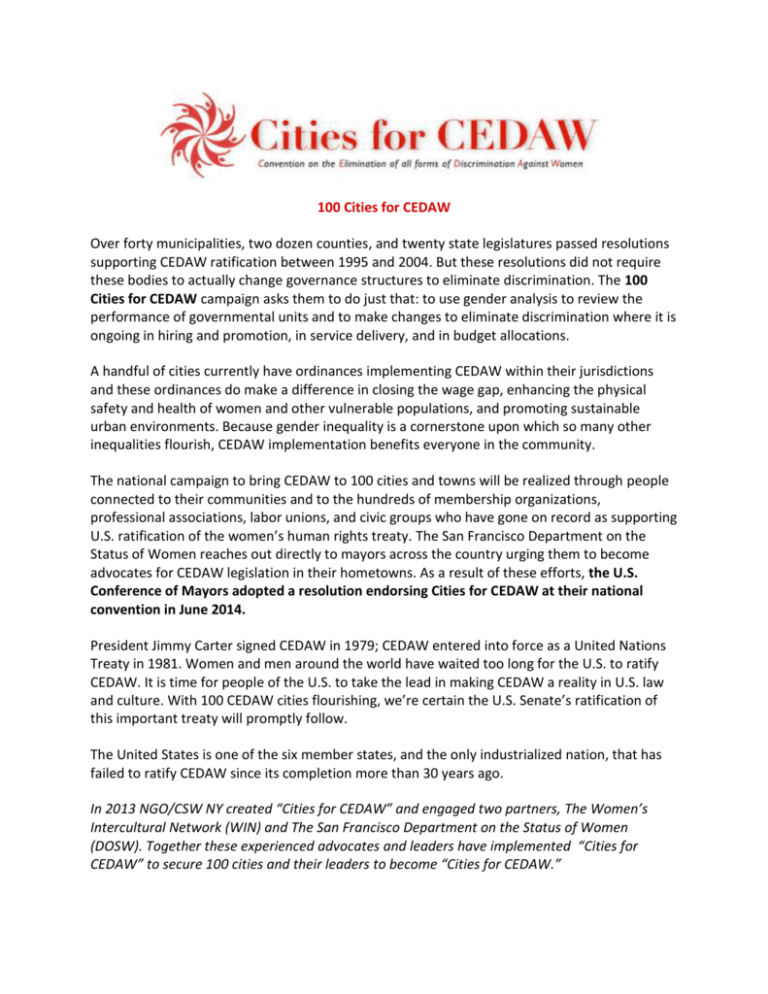
100 Cities for CEDAW
Over forty municipalities, two dozen counties, and twenty state legislatures passed resolutions
supporting CEDAW ratification between 1995 and 2004. But these resolutions did not require
these bodies to actually change governance structures to eliminate discrimination. The 100
Cities for CEDAW campaign asks them to do just that: to use gender analysis to review the
performance of governmental units and to make changes to eliminate discrimination where it is
ongoing in hiring and promotion, in service delivery, and in budget allocations.
A handful of cities currently have ordinances implementing CEDAW within their jurisdictions
and these ordinances do make a difference in closing the wage gap, enhancing the physical
safety and health of women and other vulnerable populations, and promoting sustainable
urban environments. Because gender inequality is a cornerstone upon which so many other
inequalities flourish, CEDAW implementation benefits everyone in the community.
The national campaign to bring CEDAW to 100 cities and towns will be realized through people
connected to their communities and to the hundreds of membership organizations,
professional associations, labor unions, and civic groups who have gone on record as supporting
U.S. ratification of the women’s human rights treaty. The San Francisco Department on the
Status of Women reaches out directly to mayors across the country urging them to become
advocates for CEDAW legislation in their hometowns. As a result of these efforts, the U.S.
Conference of Mayors adopted a resolution endorsing Cities for CEDAW at their national
convention in June 2014.
President Jimmy Carter signed CEDAW in 1979; CEDAW entered into force as a United Nations
Treaty in 1981. Women and men around the world have waited too long for the U.S. to ratify
CEDAW. It is time for people of the U.S. to take the lead in making CEDAW a reality in U.S. law
and culture. With 100 CEDAW cities flourishing, we’re certain the U.S. Senate’s ratification of
this important treaty will promptly follow.
The United States is one of the six member states, and the only industrialized nation, that has
failed to ratify CEDAW since its completion more than 30 years ago.
In 2013 NGO/CSW NY created “Cities for CEDAW” and engaged two partners, The Women’s
Intercultural Network (WIN) and The San Francisco Department on the Status of Women
(DOSW). Together these experienced advocates and leaders have implemented “Cities for
CEDAW” to secure 100 cities and their leaders to become “Cities for CEDAW.”
The campaign is a grass-roots effort that provides tools and leadership to empower local
organizations and municipalities and effectively initiate CEDAW within their city or town.
From the San Francisco Department of Women:
The purpose of the Cities for CEDAW campaign is to “make the global local” by harnessing the
power of cities and promoting the adoption of CEDAW as a municipal ordinance in cities large
and small in order to create a framework for improving the status of women and girls.
Supported at the June 2014 US Conference of Mayors, Cities for CEDAW will mobilize multiple
stake holders including elected officials, the media, business, youth, NGOs, faith communities,
and women leaders.
In 1998, San Francisco was the first city to implement CEDAW as a local ordinance. The
ordinance contains provisions to combat discrimination, violence, and sexual harassment
against women, as well as ensuring access to health-care services and education.
Other U.S. cities including Portland, Oregon and Berkeley, California, as well as the State of
Hawaii, have enacted similar initiatives. The next goals for Cities for CEDAW are to gain support
from 100 mayors for CEDAW in 2015 and to secure 100 municipal CEDAW ordinances by
January 2016.

